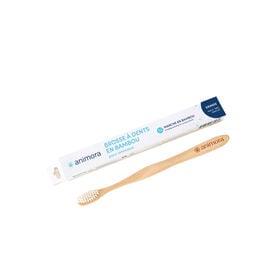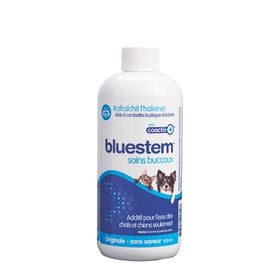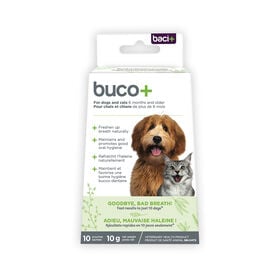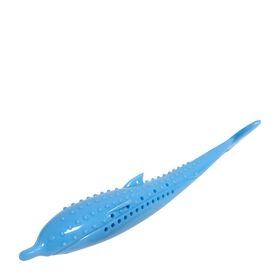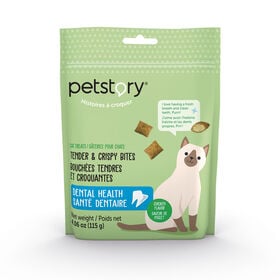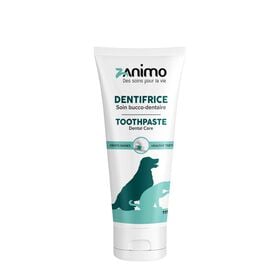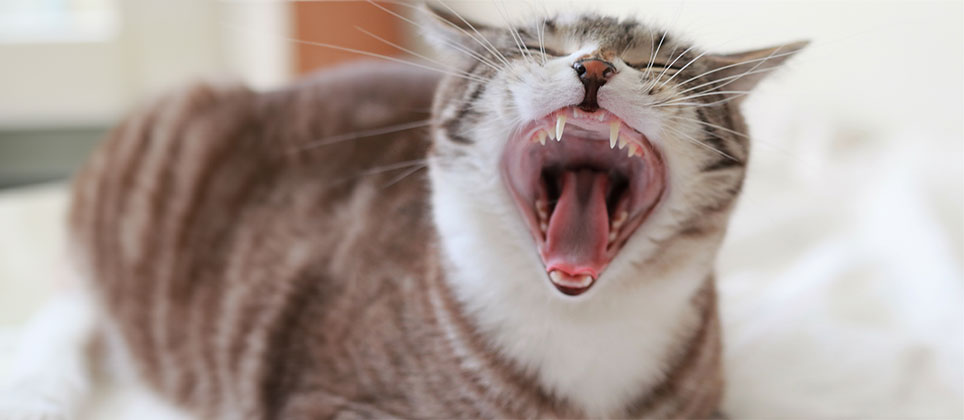
Your cat's dental health: essential care strategies
Published February 8, 2024.

Virginie Roger, AHT, CCRP, M.Sc. Kinesiology
Certified Animal health technician, Certified canine rehabilitation practitioner, Master in kinesiology.
Did you know that, according to the American Veterinary Medical Association, around 70% of cats will develop periodontal disease at some point? If left untreated, this dental issue can cause pain, difficulty eating, and even more severe health problems. That's why paying extra attention to your feline's oral health is crucial to ensure they have the best quality of life possible.
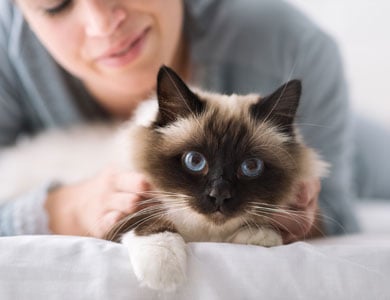
Here is a practical approach to help you incorporate a dental hygiene routine for your cat's overall well-being.
Various dental conditions in cats
Recognizing early dental problems in cats is crucial to prevent them from worsening.
Signs that your cat has dental problems
Cats are known for hiding their pain, especially regarding dental issues. However, there are subtle signs that you can observe to identify if your feline friend is suffering from dental problems. Watch out for signs such as persistent bad breath, loss of appetite, difficulty eating, and even increased irritability. These signals may indicate the presence of dental complications that require immediate attention.
Also read: 10 common causes of bad breath in dogs and cats
Preventive solutions
Maintaining healthy teeth in cats primarily depends on prevention. It is essential to regularly check your cat's mouth for early signs of dental problems. You can adopt preventive measures by using dental toys and incorporating food that promotes oral health. These simple actions can help prevent plaque buildup and reduce the risk of dental disease.
Dental problems specific to cats
Cats can suffer from various dental conditions, such as feline gingivitis, dental abscesses, and tartar buildup. It's essential to keep a close eye on these problems. Gingivitis, for example, can cause painful gum inflammation, and untreated infections can lead to dental abscesses. It's crucial to thoroughly understand these specific conditions, which will allow for early intervention and effective management to ensure your cat's optimal dental health.
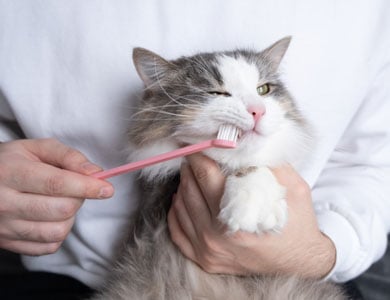
Tips for brushing your cat's teeth
Brushing your cat's teeth may seem daunting, but it's essential in preventing plaque buildup. Gradually introduce this practice into your cat's routine using a toothbrush and toothpaste designed for pets.
Tooth brushing routine
- Start by gently running your fingers over your cat's gums and teeth to help them get used to the sensation. Reward them with treats or some petting to make it a positive experience.
- Once your cat is comfortable with the finger touch, add toothpaste to your finger to help him get used to the taste and texture. Never use human toothpaste, which can affect your cat's digestive system. Use a dental hygiene kit specifically designed for cats instead.
- Use a small, soft toothbrush or plastic fingerbrush to brush your cat's teeth in circular movements. It will help dislodge the bacteria that may be stuck to their teeth.
- Reward your cat with a treat after each brushing session to make it a positive experience.
- Repeat this daily brushing routine to maintain your cat's dental hygiene.
Preventing dental problems in kittens
The initial months of a cat's life are vital for developing good dental habits. It's important to get your kitten used to mouth touching during this time and gradually introduce age-appropriate dental toys.
Consult your vet regularly for specific advice on your kitten's oral health. By preventing problems early on, you can ensure a healthy set of teeth throughout your cat's adult life.
Also read: Embrace the purr-fect addition: welcoming a new kitten home
Diet and its impact on cats' dental health
Diet plays a significant role in your cat's dental health. Feeding your cat a balanced diet appropriate for their age is essential.
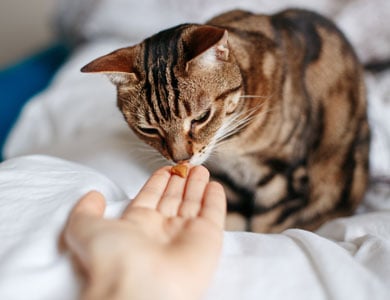
Dental food
Certain types of kibble can also help reduce plaque buildup and promote natural teeth cleaning. How does it work?
This kind of diet works in two ways:
- The kibble rubs against the teeth, which simulates the action of brushing.
- An anti-tartar substance is added to the food, which binds the calcium in your cat's saliva and reduces tartar buildup.
Dental food is recommended for adult cats to maintain dental health. Consult your veterinarian for options focusing on beneficial textures and ingredients.
Dental toys and treats
Playtime and treats can be helpful tools to maintain your cat's dental health. Opt for toys that encourage chewing to help remove plaque naturally. Also, choose treats formulated explicitly for dental health, as they can stimulate gums and prevent tartar buildup.
By incorporating these playful elements into your cat's daily routine, you can provide ongoing support for their oral health.
At the vet
It is essential to take your cat to the veterinarian for an annual dental examination to ensure the health of their teeth and gums. The vet will check for weakened or affected teeth and treat any underlying infections during the examination. Additionally, scheduling scaling under general anaesthesia a few times throughout your cat's life is recommended for proper examination and cleaning.
Also read: Your pet's dental hygiene: everything you need to know
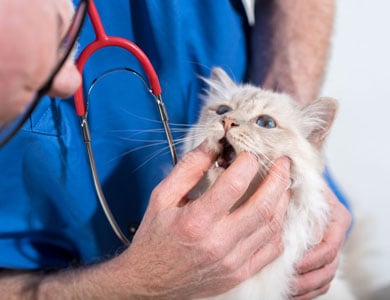
Did you know...
- Feeding your cat table scraps or wet food can accelerate plaque buildup on their teeth.
- When plaque accumulates on your cat's teeth, it can harden into tartar, leading to gum inflammation, tooth lesions, pain, and loss of teeth.
- Bad breath, red gums, eye or nose secretions, and excessive drooling may indicate periodontal disease. It's essential to consult your veterinarian when you notice these signs.
Investing in your cat's dental health is crucial for its quality of life. Prevention is critical in avoiding health issues for your feline friend.
